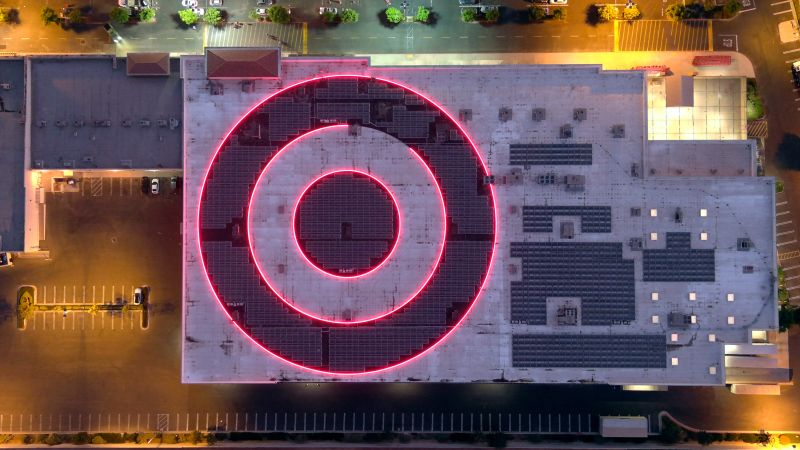The July 26 ceremonies present both logistical and security challenges. Officials canceled scheduled rehearsals in April and May, saying heavy rains had made the water too high.
Extensive rain can also affect contamination levels in the river. Paris officials have been working to get the Seine clean enough to serve as a venue for Olympics triathlon and marathon swimming. But test results published Friday by city and regional officials showed E. coli in excess of safe-swimming thresholds.
Monday’s rehearsal was guarded by a heavy police presence on the riverbanks. Police boats sped along the Seine. But few spectators followed the low-key test run, which did not look too different from an ordinary day. The parade will include ordinary tourist boats that can frequently be sighted on the Seine.
Anne Fitzgerald, a Paris resident, said watching the practice run still felt special to her. “It’s absolutely fantastic,” she said. Up until now, “it’s just been controversy, and talk, and complaining, and now all of a sudden we’re seeing this rehearsal and it puts you in the spirit of what it will be on the day.”
Fitzgerald said the burden of the preparations is increasingly being felt by locals, as roads and bridges are being closed for the construction of stands and for safety. But at least for her, the benefits of having the chance to live the Olympic Games outweigh the negatives.
“It’s almost like I’m seeing the Opening Ceremony without seeing the Opening Ceremony,” she said, adding that purchasing a ticket for the actual event would have been too expensive. It’ll be much more spectacular “than doing it in a stadium,” she said.
The actual Opening Ceremonies are supposed to be more elaborate than Monday’s trial run, with up to 180 boats, 10,000 athletes and 326,000 spectators watching from the riverbanks. The plan is for the floating parade to cover more than 3 1/2 miles through central Paris, from Austerlitz bridge to the Eiffel Tower. USA Gymnastics CEO Li Li Leung said she expected the team’s athletes would be discouraged from attending, as the ceremonies would require them to be on their feet for nine hours.
French officials say security will be tight, with 45,000 police officers and 18,000 soldiers supported by 22,000 private contractors — though leaders in the private sector have raised concerns about a potential shortfall of qualified contractors.
The top priority will be to prevent a large-scale terrorist attack, like the coordinated suicide bombings and shootings that killed 130 people across Paris in 2015, or the truck that plowed into a crowd in Nice, killing 86 people in 2016. French officials are also sensitive to the need to avoid a dangerous crowd crush.
The Interior Ministry said last month that it had arrested an 18-year-old from Chechnya on suspicion of planning to attack spectators and police at Olympics soccer matches in the French city of Saint-Etienne. And this month, a website linked to the Islamic State appeared to encourage “lone wolves” to carry out attacks, with an image of a drone being directed at the Eiffel Tower.
While militant groups may be responsible for some of the threats, Microsoft’s threat analysis center reported that a Russian disinformation campaign is also seeking to discredit the Paris Olympics and promote the notion that violence will break out.
Security concerns have clashed with France’s “Games Wide Open” pledge. Originally, Interior Minister Gérald Darmanin said more than half a million spectators would be able to attend the Opening Ceremonies — 100,000 ticket holders on the riverbanks and 500,000 fans watching for free from upper platforms. But he has reduced the total by half, with 104,000 reserved spots for paying fans and 220,000 free tickets earmarked for selected residents of Paris and other French towns hosting Olympic events.
The changes reflect “the need to make it the most popular ceremony that we can, while managing all the details on the security and the safety side,” French Sports Minister Amélie Oudéa-Castéra told The Washington Post.
Officials say they still anticipate record attendance. Previous records have hovered near the 100,000 mark.
President Emmanuel Macron has acknowledged that there is a plan B in case major security concerns emerge in the days leading up to the ceremonies. The ceremonies could be contained within the Trocadero square, which faces the Eiffel Tower, or they could be moved to the Stade de France stadium on the outskirts of the city.
The Sports minister on Monday said organizers continue to focus on plan A. “There is no reason to change course,” she said.
Particularly close attention will be paid to the Israeli delegation, which may face its biggest risks since the 1972 Munich Games, when 11 Israeli athletes and coaches were killed in an attack by members of a Palestinian militant group.
Parisians living or working near the riverbanks in central Paris are among the 1 million people who will have gone through a security screening by late July, French officials say. In recent weeks, French police have practiced for potential emergencies and searched the vast network of catacombs underneath the French capital, which is connected to the Seine.
Olympics organizers have sought to reassure the public that the recently announced French elections and a potential change in government after July 7 won’t hinder plans for the Games. Jordan Bardella, who stands a chance of becoming prime minister if his far-right party posts a big enough win, said he would not make any changes that might affect the Olympics. “This event must be a great success for the Nation,” he said.



